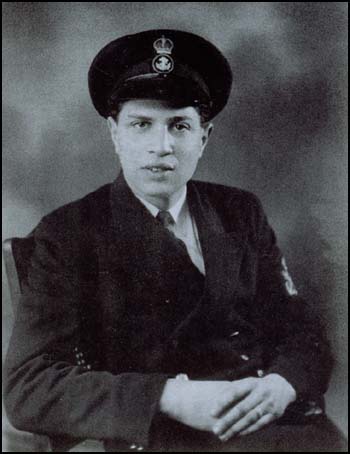On this day on 29th May
On this day in 1537 people are convicted of spreading false rumours about Anne Boleyn. Elizabeth Wood, married to Robert Wood, lived in Aylsham. In 1529 Henry VIII sent a message to Pope Clement VII arguing that his marriage to Catherine of Aragon had been invalid as she had previously been married to his brother Arthur. Henry relied on Cardinal Thomas Wolsey to sort the situation out. Rumours soon began circulating about Henry's plan to divorce Catherine in order to marry Anne Boleyn.
It was reported by Cardinal Jean du Bellay in May 1529 that Catherine had the support of the majority of women living in England at the time. "If the matter were to be decided by women, he (Henry VIII) would lose the battle, for they did not fail to encourage the queen (Catherine of Aragon) at her entrance and departure by their cries, telling her to care for nothing, and other such words."
George Cavendish, who was a member of Cardinal Wolsey's household later wrote that "the world began to be full of wonderful rumours not heard of before in this realm". This mainly concerned "the long hid and secret love between the king and Mistress Anne Boleyn" and this "began to break out into every man's ears". The chronicler, Edward Hall, confirmed this and commented that there was growing hostility towards a "gentlewoman in the court called Anne Boleyn".
At the end of 1532 Henry discovered that Anne Boleyn was pregnant. He realised he could not afford to wait for the Pope's permission. As it was important that the child should not be classed as illegitimate, arrangements were made for Henry and Anne to get married. King Charles V of Spain threatened to invade England if the marriage took place, but Henry ignored his threats and the marriage went ahead on 25th January, 1533. It was very important to Henry that his wife should give birth to a male child. Without a son to take over from him when he died, Henry feared that the Tudor family would lose control of England. Elizabeth was born on 7th September, 1533.
In an attempt to gain support for his new queen, Henry VIII insisted on Parliament passing the 1534 Treason Act. The Act specified that all those were guilty of high treason who: “do maliciously wish, will or desire by words or writing, or by craft imagine, invent, practise, or attempt any bodily harm to be done or committed to the king's most royal person, the queen's or the heirs apparent, or to deprive them of any of their dignity, title or name of their royal estates, or slanderously and maliciously publish and pronounce, by express writing or words, that the king should be heretic, schismatic, tyrant, infidel or usurper of the crown."
In 1536 a proclamation was issued in support of the Treason Act. It attacked "devilish and slanderous persons" who were spreading "slanderous, false, and detestable rumours, tales, and lies". It called on all loyal subjects to "apprehend all and every such person and persons that they can prove to have bruited or set forth any forged false rumours, tales, and lies". The proclamation made it clear that punishment for those found guilty of the offence would be severe: "They shall not only bring upon themselves the vengeance and indignation of God, to the peril and damnation of their souls, but also give us just cause to proceed against such rebels with our most royal power and force, to the utter destruction of them, their wives, and children."
A group of people based in Norfolk were convicted on 25th May, 1537, of treason and sentenced to be hanging, drawing, beheading, and quartering. It was claimed that they were active in and around Walsingham. Their crimes included spreading rumours about Anne Boleyn. Over the next few days Nigel Mileham, the sub-prior of Walsingham Priory, John Semble, a mason, Ralph Rogerson, a farmer, William Guisborough, a merchant, George Guisborough, a yeoman peasant, Thomas Howse, a husbandman, Thomas Manne, a carpenter, Andrew Pax, a parish clerk, John Pecock, a friar, John Sellers, a tailor and Richard Henley, a plumber, were executed. Richard Southwell reported to Thomas Cromwell that all the men confessed to the crime. "So lying on the hurdles, both by the way and at the place of execution, they exhorted the people, who by reason of Trinity Fair that day, were very numerous to take example by them."
Southwell continued with his investigation and on 28th May he was given evidence that Elizabeth Wood was involved in this conspiracy. John Bettes and Thomas Oakes claimed that "Elizabeth Wood, the wife of Robert Wood of Aylsham" had said "certain traitorous words". They told Southwell that Wood had visited a shop owned by John Dix and had expressed support for the men found guilty of treason in Walsingham. She was, they said, "resting upon the shop windows of John Dix" when she spoke about these matters. Apparently she said "it was a pity that these Walsingham men were discovered, for we shall have never good world till we fall together by the ears, and with clubs and clouted shone/shall the deeds be done, for we had never good world since this king reigned. It is pity that he filed any clouts more than one." Wood was found guilty of treason on 26th July and executed soon afterwards.
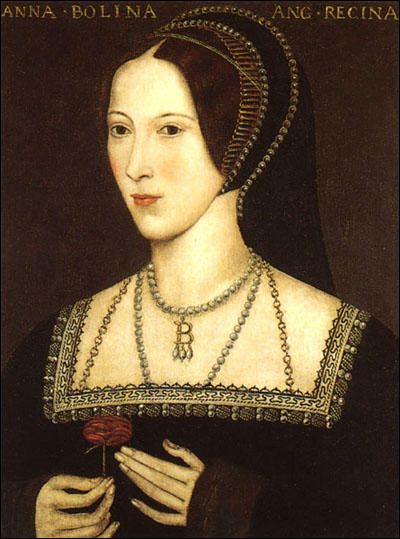
On this day in 1829 chemist Humphry Davy died. Humphry Davy, a woodcarver's son, was born in Penzance on 17th December, 1778. After being educated in Truro, Davy was apprenticed to a Penzance surgeon. In 1797 he took up chemistry and was taken on by Thomas Beddoes, as an assistant at his Medical Pneumatic Institution in Bristol. Here he experimented with various new gases and discovered the anesthetic effect of laughing gas (nitrous oxide).
Davy published details of his research in his book Researches, Chemical and Philosophical (1799). This led to Davy being appointed as a lecturer at the Royal Institution. He was a talented teacher and his lectures attracted large audiences.
In 1806 Davy published On Some Chemical Agencies of Electricity. The following year he discovered that the alkalis and alkaline earths are compound substances formed by oxygen united with metallic bases. He also used electrolysis to discover new metals such as potassium, sodium, barium, strontium, calcium and magnesium.
Davy was now considered to be Britain's leading scientist and in 1812 was knighted by George III. His biographer, David Knight, wrote: "On 8 April 1812 Davy was knighted by the prince regent, and on the 11th he and Jane Apreece were married by the bishop of Carlisle at Jane's mother's house in Portland Place. They spent their honeymoon in Scotland, staying with eminent people; Davy took his little apparatus with him, and conducted some researches on gunpowder. He gave up his courses of lectures, and wrote up his Elements of Chemical Philosophy the same year. This, dedicated to Jane, dealt with his own work, and was meant to be the first of a multi-volume set, but it did not sell well, for it was not a satisfactory textbook and his researches were accessible in the Royal Society's Philosophical Transactions."
Michael Faraday saw Davy lecture in 1813: "Sir H. Davy proceeded to make a few observations on the connections of science with other parts of polished and social life. Here it would be impossible for me to follow him. I should merely injure and destroy the beautiful and sublime observations that fell from his lips. He spoke in the most energetic and luminous manner of the Advancement of the Arts and Sciences. Of the connection that had always existed between them and other parts of a Nation's economy. During the whole of these observations his delivery was easy, his diction elegant, his tone good and his sentiments sublime." In 1813 Faraday became his temporary assistant and spent the next 18 months touring Europe while during Davy's investigations into his theory of volcanic action.
In 1815 Humphry Davy invented a safety lamp for use in gassy coalmines, allowing deep coal seams to be mined despite the presence of firedamp (methane). This led to some controversy as George Stephenson, working in a colliery near Newcastle, also produced a safety lamp that year. Both men claimed that they were first to come up with this invention. Stephenson wrote in The Philosophical Magazine in 1817: "The principles upon which a safety lamp might be constructed I stated to several persons long before Sir Humphrey Davy came into this part of the country. The plan of such a lamp was seen by several and the lamp itself was in the hands of the manufacturers during the time he was here."
One of Davy's most important contributions to history was that he encouraged manufacturers to take a scientific approach to production. His discoveries in chemistry helped to improve several industries including agriculture, mining and tanning.
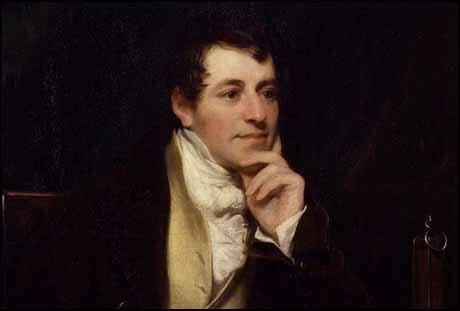
On this day in 1919 Winston Churchill lied to the House of Commons about using chemical weapons on the Red Army. Churchill had supported the sending of British troops to help the White Army in the Russian Civil War, under the command of Lieutenant-Colonel John Ward. However, it had not been a success Ward later told one of his officers, Brian Horrocks: "I believe we shall rue this business for many years. It is always unwise to intervene in the domestic affairs of any country. In my opinion the Reds are bound to win and our present policy will cause bitterness between us for a long time to come." Horrocks agreed: "How right he was: there are many people today who trace the present international impasse back to that fatal year of 1919."
Churchill argued that the British had not sent enough troops. He argued in a Cabinet meeting that Britain should intervene "thoroughly, with large forces, abundantly supplied with mechanical appliances". He also suggested a campaign to recruit a volunteer army to fight in Russia. David Lloyd George admitted that the Cabinet was united in its hostility to the Bolsheviks but they did have support in Russia. He added that Britain had no right to interfere in their internal affairs and anyway lacked the means to do so.
Winston Churchill now took the controversial decision to use the stockpiles of M Device against the Red Army. He was supported in this by Sir Keith Price, the head of the chemical warfare, at Porton Down. He declared it to be the "right medicine for the Bolshevist" and the terrain would enable it to "drift along very nicely". Price agreed with Churchill that the use of chemical weapons would lead to a rapid collapse of the Bolshevik government in Russia: "I believe if you got home only once with the Gas you would find no more Bolshies this side of Vologda."
In the greatest secrecy, 50,000 M Devices were shipped to Archangel, along with the weaponry required to fire them. Winston Churchill sent a message to Major-General William Ironside: "Fullest use is now to be made of gas shell with your forces, or supplied by us to White Russian forces." He told Ironside that this "thermogenerator of arsenical dust that would penetrate all known types of protective mask". Churchill added that he would very much like the "Bolsheviks" to have it. Churchill also arranged for 10,000 respirators for the British troops and twenty-five specialist gas officers to use the equipment.
Some one leaked this information and Winston Churchill was forced to answer questions on the subject in the House of Commons on 29th May 1919. Churchill insisted that it was the Red Army who was using chemical warfare: "I do not understand why, if they use poison gas, they should object to having it used against them. It is a very right and proper thing to employ poison gas against them." His statement was untrue. There is no evidence of Bolshevik forces using gas against British troops and it was Churchill himself who had authorised its initial use some six weeks earlier.
On 27th August, 1919, British Airco DH.9 bombers dropped these gas bombs on the Russian village of Emtsa. According to one source: "Bolsheviks soldiers fled as the green gas spread. Those who could not escape, vomited blood before losing consciousness." Other villages targeted included Chunova, Vikhtova, Pocha, Chorga, Tavoigor and Zapolki. During this period 506 gas bombs were dropped on the Russians. Lieutenant Donald Grantham interviewed Bolshevik prisoners about these attacks. One man named Boctroff said the soldiers "did not know what the cloud was and ran into it and some were overpowered in the cloud and died there; the others staggered about for a short time and then fell down and died". Boctroff claimed that twenty-five of his comrades had been killed during the attack. Boctroff was able to avoid the main "gas cloud" but he was very ill for 24 hours and suffered from "giddiness in head, running from ears, bled from nose and cough with blood, eyes watered and difficulty in breathing."
Major-General William Ironside told David Lloyd George that he was convinced that even after these gas attacks his troops would not be able to advance very far. He also warned that the White Army had experienced a series of mutinies (there were some in the British forces too). Lloyd George agreed that Ironside should withdraw his troops. This was completed by October. The remaining chemical weapons were considered to be too dangerous to be sent back to Britain and therefore it was decided to dump them into the White Sea.
Winston Churchill created great controversy by the creation of Iraq. According to Boris Johnson: "He (Churchill) was the man who decided that there should be such a thing as the state of Iraq, if you wanted to blame anyone for the current implosion, then of course you might point the finger at George W. Bush and Tony Blair and Saddam Hussein - but if you wanted to grasp the essence of the problem of that wretched state, you would have to look at the role of Winston Churchill."
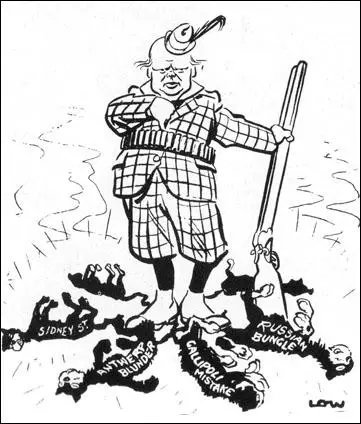
On this day in 1937 Jim Brewer, fighting in the Spanish Civil War, writes to his parents. "A comrade from Bedlinog who has just gone home will call on you soon. He was reported killed on three occasions, so if you get any reports don't believe them until you hear from one of my pals. If I do get knocked out don't grieve for me. I shall have been true to my belief. Than that no man can do more. If I come through life will be a hundred times more valuable to me than it was before. Also it will be a hundred times more useful to my fellows. Industrial news from England cheers us considerably. The Busmen's strike cheered us considerably and news of the struggle upon which the miners are about to embark gives rise to feelings I cannot describe. Everything seems to be in time towards a new phase in the history of the working class. Yesterday we heard that a few Italian provinces had revolted against the sending of men to Spain. That is magnificent. In Germany too, the working class movement is stronger in the sense of determination, than it has ever been. When the movement comes Herr Hitler and Co are booked for hell. I have met some men who have just come from Germany and they knew. All over the world the workers are ready, everything depends on the struggle here. Therefore we have got to and we will win. Even now the situation is as militant, I imagine, as it was at the end of the war. But now we have the lessons of the last seventeen years behind us, and the lessons are many and good. That goes for the world generally. A general strike of the miners and one or two other key industries and the 'National government' goes to the wall. Did I tell you in my last letter that we go to church twice a day? We eat there. Last summer the chief priest fired on the people with a machine gun and killed thirty. That's the sort of atrocity you never hear of in England. The church was built in 1520 and this is the first time its been put to decent use."
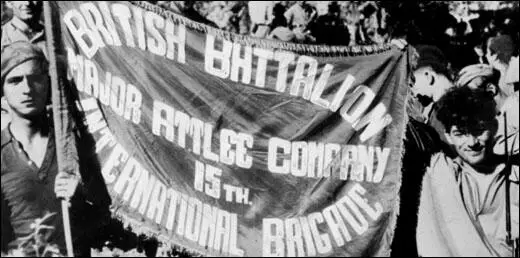
On this day in 1965 Ralph Miliband writes letter to John Saville on the Vietnam War. "Vietnam illustrates better than any other event in this century the fundamental elements of the world as we know it: i.e. American determination to crush social revolution; the existence and endurance of such movements; i.e. the real nature of present day imperialism; the decrepitude of social-democracy, its bankruptcy and moral collapse; ditto for liberalism; the paralysing nature of the Sino-Soviet conflicts;. .. the bankruptcy of liberalism, particularly liberal intellectuals; the paralysis of (Communist Parties) as agencies of protest and action; the nature of the still inchoate forces which are struggling to protest, students, ex-liberals like Russell, etc.; and one could go on like this. This is what the world is about, and which Vietnam pinpoints in the sharpest, most dramatic and bloody way."
